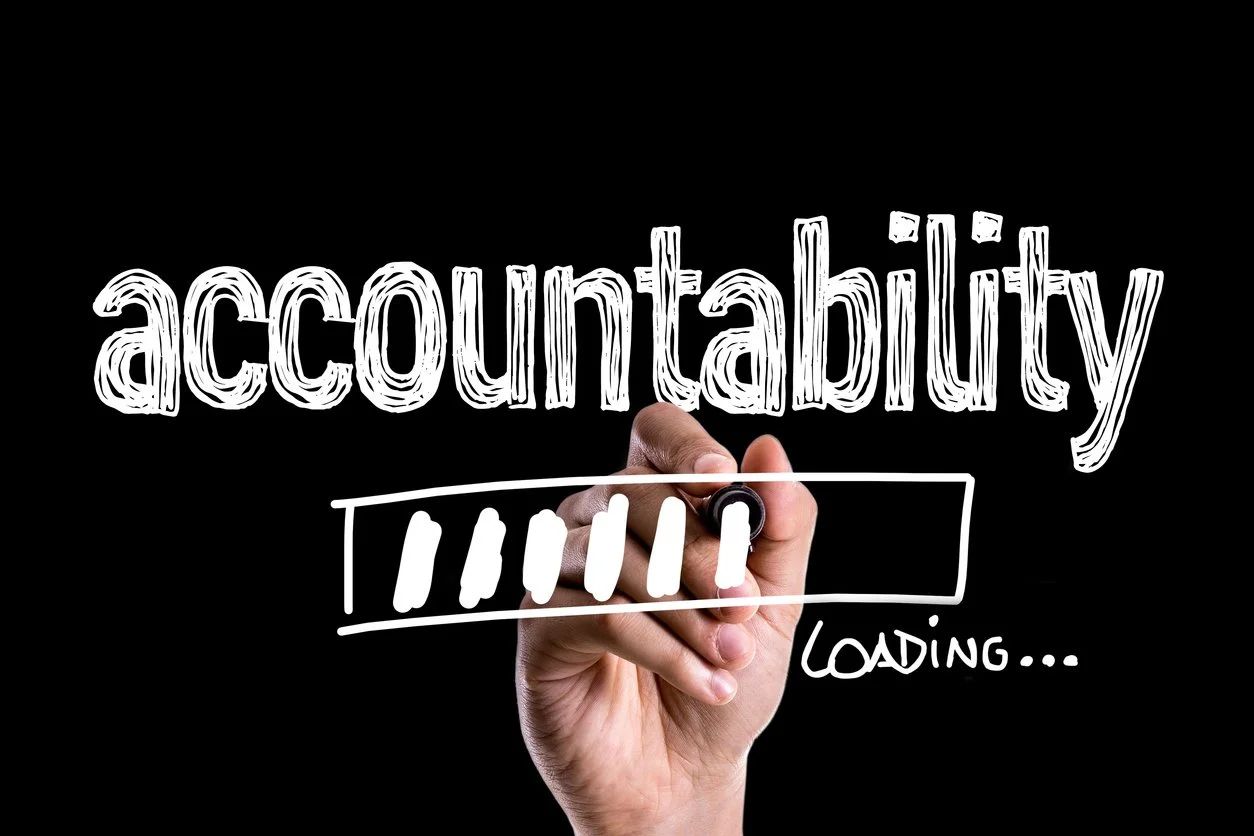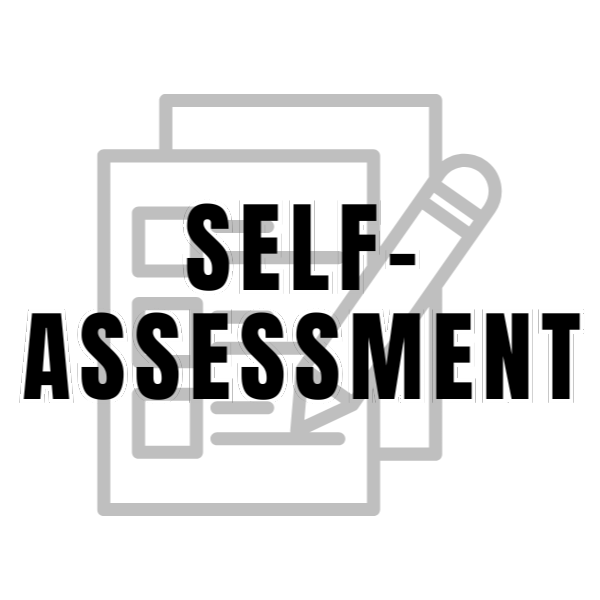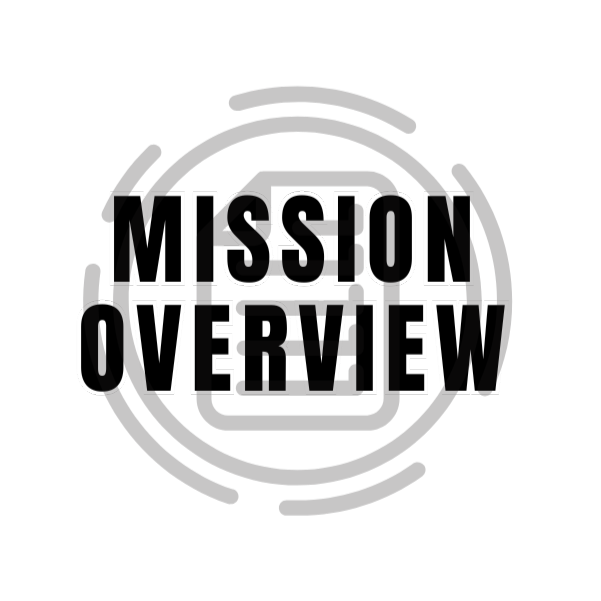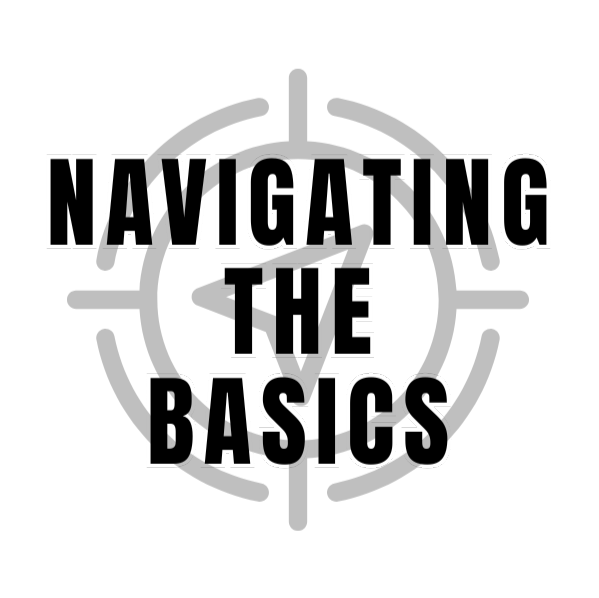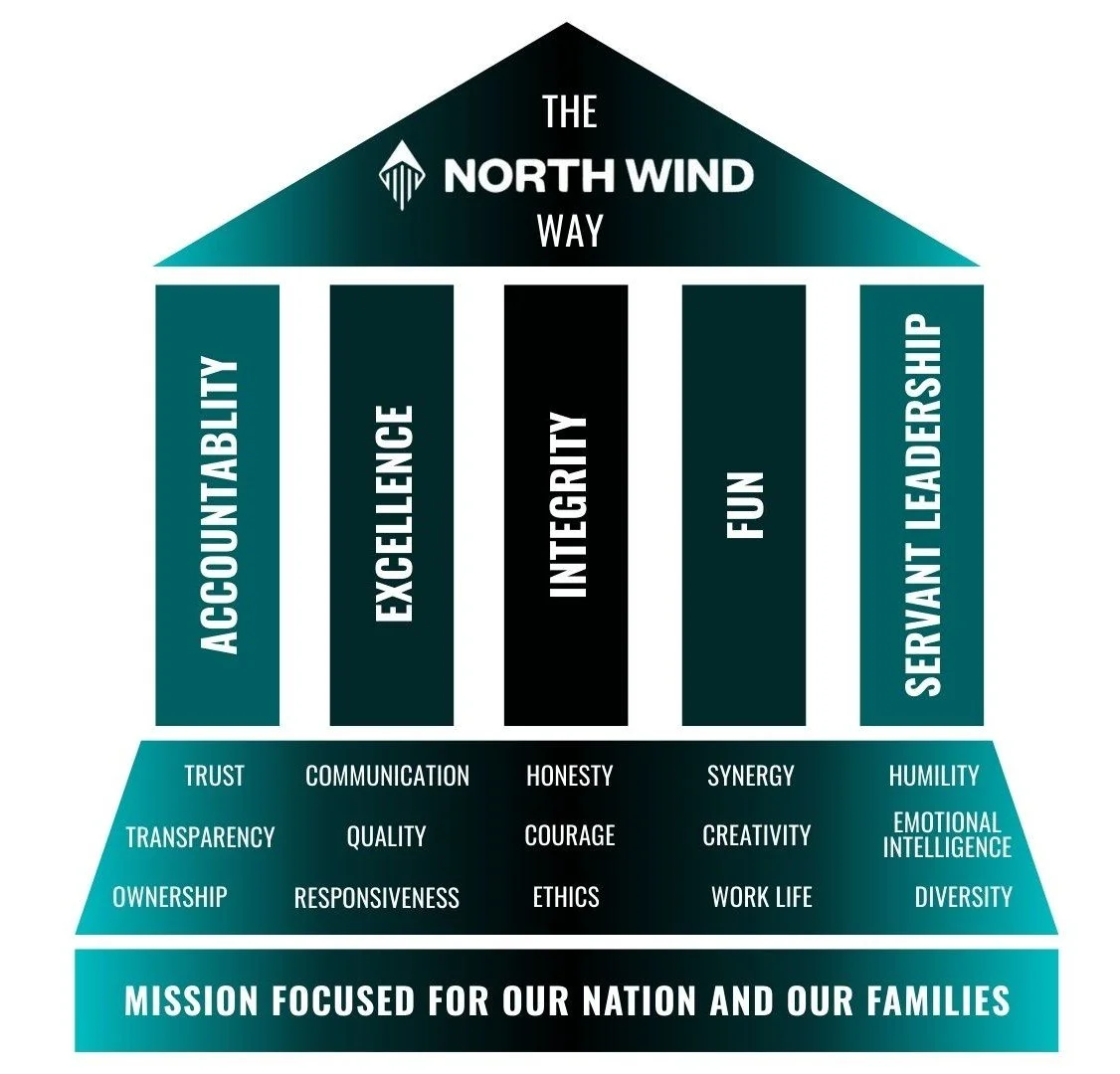Personal Accountability
Strong leadership begins with responsibility, follow-through, and integrity. Practicing personal accountability means owning your actions and decisions, no matter the outcome, and staying honest with yourself and others. If you commit to finishing a task by a certain date, accountability means making the effort to meet that commitment, even when it becomes difficult.
It’s not just about meeting outside expectations. It also includes the goals and standards you set for yourself. If you don’t hold yourself accountable, it becomes harder to expect it from others.
Whether you’re managing daily responsibilities, coordinating across roles, or working toward long-term goals, accountability makes a difference. People learn to rely on you when your actions reflect your intentions. It shows up in how you follow through, how you respond when something goes wrong, and how you take responsibility for results. At North Wind, this kind of leadership helps build trust and strengthens how people work together.
Self-Assessment: Personal Accountability
Please take a few moments to contemplate the following self-reflection questions. Where can you identify opportunities for personal growth in your leadership?
Do I set clear expectations for myself in different areas of my life, such as work, communication, or follow-through?
How often do I complete what I say I will do, even when it's inconvenient?
When I make a mistake, do I acknowledge it and try to correct it?
Do I accept feedback without becoming defensive or dismissive?
Am I honest about my own patterns, or do I tend to shift blame?
How often do I reflect on my performance or decisions without being prompted?
Do I support accountability in others by setting a clear example?
When problems come up, do I respond with action or avoid the situation?
Remember, this self-assessment is just a starting point for understanding your knowledge of Personal Accountability as a leader. It's essential to reflect on your responses and actively work on areas where improvement is needed. Additionally, seeking feedback from others and working with your ECFL Leadership Coach can provide valuable insights into your strengths and weaknesses.
Personal accountability begins with self-awareness. It means taking responsibility for your actions, the choices you make, and the results that follow. When leaders act with awareness and intention, they create consistency in how they work and how they are perceived by others.
For example, if you value respect but often speak over others in meetings, self-awareness helps you recognize that your actions may not reflect your values. That awareness becomes the first step toward change.
When self-awareness and accountability work together, your decisions become more thoughtful and reliable. If a deadline is missed, you look at what caused the delay and consider how to prevent it next time. These habits—acknowledging what happened, learning from it, and applying that insight—build trust and strengthen leadership.
Make It Actionable
Accountability grows when it’s tied to action. For example, if you missed a deadline because you underestimated the time needed, you might decide to break similar tasks into smaller parts moving forward. You could also build in extra time to handle the unexpected. Writing down these adjustments helps turn insight into consistent habits.
“On good teams coaches hold players accountable, on great teams players hold players accountable.”
Self-Accountability Conversations
Self-reflection is a key part of accountability, but it doesn’t have to be complicated or stressful. Think of it as having a constructive, judgment-free chat with yourself. Set aside time once a month for a 15-20 minute “personal check-in” to evaluate how you’re doing at work and in your personal life. You can make it enjoyable—grab a coffee, take a walk, or find a quiet spot where you can think clearly. Use this time to focus on your growth, not your flaws.
Here’s a simple structure to guide your conversation:
Celebrate Wins: Start by listing what you’ve accomplished and what you’re proud of. Big or small, acknowledging these wins can motivate you to keep going. What went well this month, and how can I build on that success
Address Setbacks: Identify areas where you fell short without being overly critical. The goal is to learn from these experiences, not dwell on them. What didn’t go as planned, and what caused it?
Plan for Improvement: Choose one specific habit or behavior to improve next month. Be realistic and focus on small, actionable steps. What’s one thing I can adjust or do differently to improve my results?
Reward Your Accomplishments and Milestones!
While discipline is the cornerstone of accountability, it’s equally important to recognize and celebrate your wins to stay motivated. Leaders, like everyone else, need time to recharge. Celebrating milestones and accomplishments, no matter their size, helps you maintain balance and improve both your personal and professional life. Consider these ideas:
Hit a major goal? Treat yourself to a night out or your favorite meal.
Completed your weekly tasks? Relax with your favorite show or enjoy some quiet time.
Made progress on a challenging project? Step away to regroup and refresh.
Taking smaller, intentional breaks keeps you energized and prevents burnout, reminding you that accountability is about progress, not just hard work.
“Accountability separates the wishers in life from the action-takers that care enough about their future to account for their daily actions.”
Accountability becomes a habit when it’s practiced consistently, one decision at a time. Over time, it helps create an environment where people follow through, support one another, and take ownership of what needs to be done. The following best practices can help you strengthen accountability in how you work and lead:
Set Clear Expectations: Clarify what needs to be done and when. Write it down if needed. Be specific about the steps involved and communicate openly with others when your expectations affect them.
Take Ownership of Actions: Accept responsibility without shifting blame. When something goes well, share the credit. When something goes wrong, focus on improving your process and avoid repeating the same mistake.
Practice Transparency: Explain your reasoning when appropriate, especially when your choices affect others. Being open about your decisions helps reduce confusion and encourages honest conversations.
Welcome Feedback: Ask for input from people you trust. Focus on one area at a time. Even small suggestions can offer useful insight that helps you grow.
Be Consistent: Follow through on what you say. This includes small commitments. Being dependable builds trust quietly, over time.
Reflect Regularly: Set aside a few minutes each week to review what worked and what could improve. Use what you learn to guide your decisions moving forward.
Use Accountability Support: Check in with someone you trust. A peer, mentor, or supervisor can help you stay focused and offer perspective when something feels off track.
Reflection Questions
What is one commitment I made recently that reflects how I want to lead?
In what area of my work could I be more consistent or more prepared to take responsibility?
What small habit could help me strengthen personal accountability over time?
Accountability is more than meeting a deadline or following instructions. It means others know they can count on you. It means holding yourself to the same standard you expect from others. At North Wind, this kind of leadership sets the tone for how work gets done and how people show up for each other.
Start with one habit. Focus on consistency, not perfection. Over time, your actions will speak for themselves.
Elevate your understanding of Personal Accountability by taking flight with the following resources. Use this opportunity to navigate, uncover, and expand the horizons of your leadership influence.
5 Steps To Inspire Positive Accountability In The Workplace
The Right Way to Hold People Accountable
Harvard Business Review
Brené Brown on Blame (3:26)

